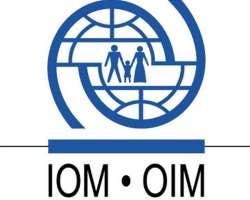Assessment in South Sudan to Determine Migrant Health Needs

GENEVA, Switzerland, December 3, 2013/African Press Organization (APO)/ -- IOM South Sudan released the findings of its recent Migrant Health Assessment last week, providing health partners in the country with an up-to-date overview of the health challenges encountered by migrants.
Funded by the IOM Partnership on Health and Mobility in East and Southern Africa (PHAMESA), the assessment is the first of its kind in South Sudan. The assessment identifies the key health vulnerabilities and needs faced by migrants, and provides reliable evidence for future collaboration between the government, partner organizations and IOM to address these needs.
“Addressing the health and wellbeing of migrants is key to ensuring that migration contributes to sustainable development,” said IOM South Sudan Chief of Mission David Derthick. “It is our hope that this assessment will provide a basis for an informed discussion on the health of migrants in the country.”
The assessment identified three key spaces of vulnerability – transport corridors, transit sites, and urban settings. One hundred and eighteen in-depth interviews, focus group discussions, and key informant discussions were carried out with migrant workers and migrant female sex workers as well as truck drivers and their mechanics, internally displaced persons (IDPs), and returnees. Information was gathered on these populations' self-reported health concerns and the barriers and enabling factors they face in accessing health care services.
Sharing land borders with six countries and having absorbed over two million returnees since 2005, South Sudan is a country largely characterized by migration. Despite the important economical and developmental contributions made by migrants, they face risks and challenges in terms of access to health services and exposure to unsafe traveling, working or living conditions.
While migrants often start their journey healthy, the conditions of the migration process may make a migrant more vulnerable to ill health. These conditions include individual, environmental and societal drivers of health vulnerabilities, such as poverty, discrimination, language and cultural differences, separation from family and legal status.
Describing the difficulties migrants can face in accessing health services, a migrant female sex worker from Uganda told IOM, “Some people go to the hospital but there is discrimination there. One woman went to the hospital, and even though she was very sick and had been waiting first, she kept getting passed over in the line. Sometimes people even pretend they don't understand you when you go to the clinic.”
The assessment report outlines 21 recommendations for partners and key stakeholders including the Government of South Sudan and UN organizations. Among these recommendations is the promotion of migrant-sensitive health systems, improved monitoring of migrant health and advocacy for migrant-sensitive policy development.
